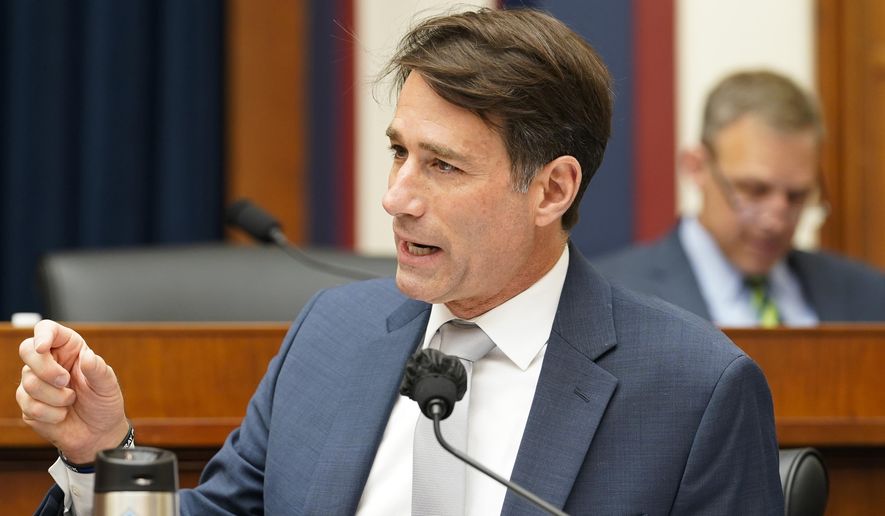Republicans on Wednesday auditioned their sales pitch for bipartisan negotiations on a sprawling package of new energy policies that Senate Democrats label “dead on arrival.”
GOP lawmakers at the forefront of the endeavor are cutting straight to the point: it’s good for vulnerable Senate Democrats and it’s needed to boost clean energy.
“Politics play a role in this. Look at the vulnerable Senate Democrats and look at the projects that have been stopped or are being stopped now,” said Rep. Kelly Armstrong, North Dakota Republican and a lead author of the bill dubbed H.R. 1. “The question will be, does it come back in some kind of bipartisan bill where they have a minority of the majority supporting it, or does it come back as something in an appropriations bill later down the line that gives political victories for rural Democrats in tough, tough reelections?”
House Republicans are making H.R. 1, the Lower Energy Costs Act, their top priority amid energy security concerns and surging energy prices. They’re looking to pass it next week as a starting point for talks with the Democrat-run Senate.
The wide-ranging legislation includes dozens of long-held GOP priorities but boils down to increasing domestic energy production of all forms — renewable and fossil fuel — by fast-tracking approvals for new projects that are frequently subjected to years of environmental reviews and hefty legal disputes.
Senate Majority Leader Charles E. Schumer, New York Democrat, has made it abundantly clear that the proposal is dead on arrival in the upper chamber. Climate advocates deride the GOP bill, saying it puts Big Oil above the well-being of the planet.
Pushing aside disagreements over whether the bill would affect energy costs or emissions levels, Republicans say Democrats need reforms to the energy permitting process for their climate change agenda and clean energy initiatives. Democrats’ Inflation Reduction Act last year provided a $370 billion windfall for green energy, making things like ramping up critical mineral production required in electric vehicle batteries a crucial piece of the puzzle.
“Dems need this more than the Republicans do,” said Rep. Garret Graves, Louisiana Republican and a leading proponent of the package. “You look at the mandates that are in place for emissions reduction for the deployment of renewables in their [Inflation Reduction Act]. This is math and science. You cannot meet the critical minimal volumes that are needed in order to meet the targets that they’ve established.”
Several attempts to pass legislation to streamline energy projects failed in the previous Congress, including from Senate Energy Committee Chairman Joe Manchin III, West Virginia Democrat.
However, a divided Congress has renewed optimism that a bipartisan deal could be reached this year. Even climate hawks concede that changes are desperately needed to get clean energy from the production source to customers.
Mr. Manchin is among moderate Democrats on Capitol Hill who are already in talks with Republicans.
Meanwhile, House Republicans have some hurdles to clear in their slim majority to pass the measure and kick off negotiations.
Those hurdles include items like offshore drilling opposed by coastal Republicans and imposing stricter guidelines for greenlighting domestic mining projects from multinational companies with checkered human rights records overseas, which is a dominant issue in the mining industry.
“Dems may come to the table because they need it for their renewable energy, they need it for their transmission. Republicans may come to the table because you know they need it for their pipeline or whatever else,” Mr. Graves said. “But there is no reason why this should not be a bipartisan effort.”
• Ramsey Touchberry can be reached at rtouchberry@washingtontimes.com.




Please read our comment policy before commenting.